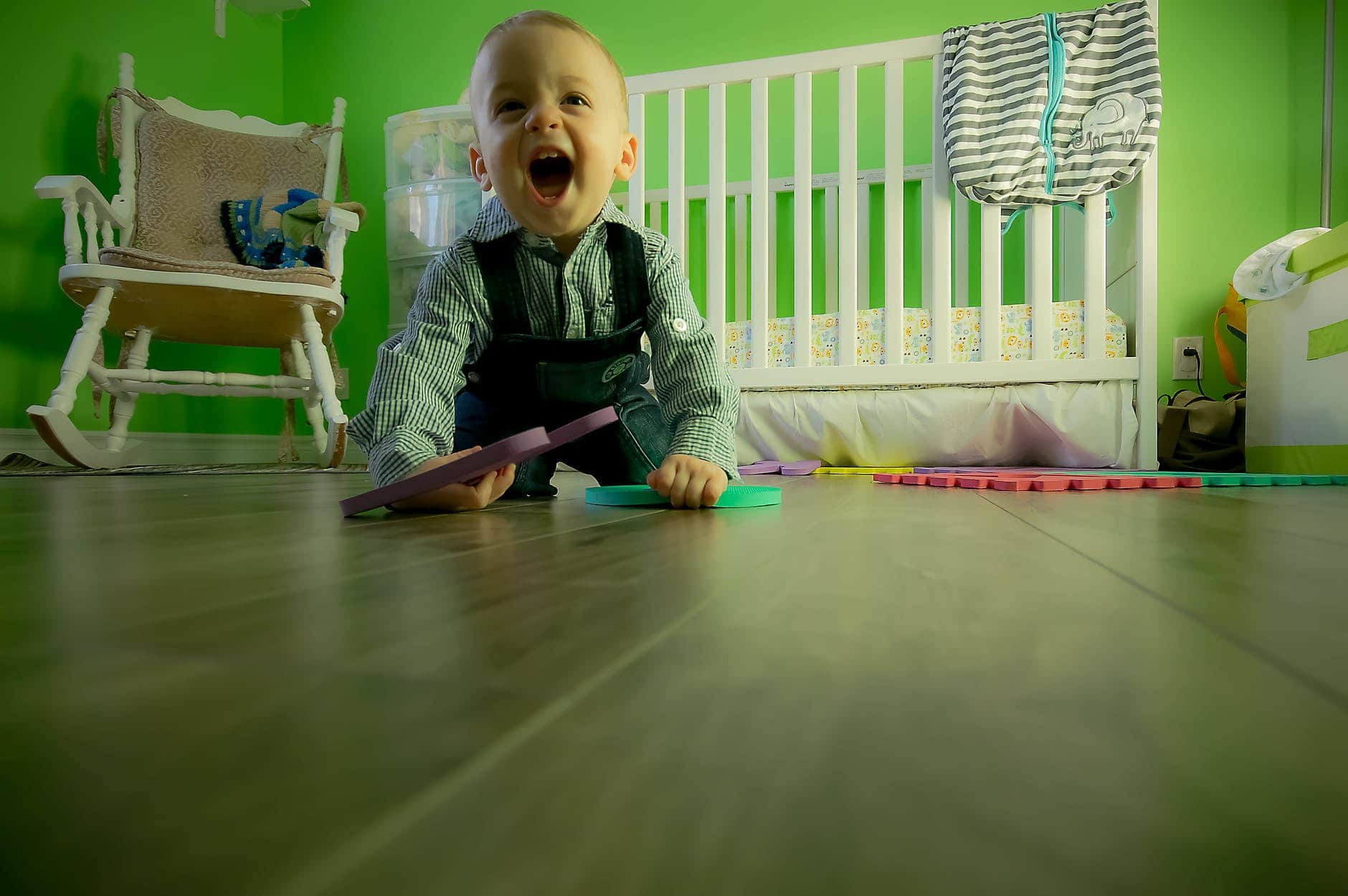When it comes to finishing up your nursery, making a decision on a type of flooring may be difficult. Installing something that can withstand the wear and tear caused by children while also keeping them safe from tumbles, falls and harmful fumes are usually at the top of most parent’s lists. And today’s focus on eco-friendliness is something that doesn’t necessarily need to be dismissed when finishing a children’s room. For a summary of the best nursery flooring types, check out this article.
Cork
Although maybe not the most familiar flooring material on the market, cork is actually quite suitable for a nursery. It’s a softer, spongier flooring option that’s great at protecting children from tumbles and falls while acting as an insulative sound barrier against busy footsteps. Cork is also naturally hypo-allergenic and antimicrobial which is great for young, sensitive noses and skin. There’s no worry about volatile organic compound (VOC) off gassing. Since cork is actually a bark, it’s considered eco-friendly as the trees are allowed to remain growing even as the cork is harvested every few years.
Bamboo
Bamboo is actually a fast growing grass rather than an actual wood. Because bamboo only takes about five to seven years to reach harvestability it’s another eco-friendly option. It’s also considered a low VOC flooring option with very little formaldehyde used during production. If you’re concerned about VOC off gassing, check for Carb Phase II ratings for indoor air standards. Bamboo is pest resistant, so you don’t have to be concerned about the use of pesticides during the growing process. It’s also very durable which can be a desirable quality in children’s rooms. You’ll worry less about scratching or denting than you would about most other flooring materials.
Hardwood
Hardwood is the classic flooring material and can still work well in a nursery. It may be more expensive than other options, but if uniform good looks throughout your house are important to you, there’s no reason why hardwood can’t work. Of course, hardwoods that rate higher on the hardness scale will be more resistant to scratches and dents, so you may want to keep that in mind when making your purchase.
Laminates
Laminates give you most of the benefits of hardwood at a fraction of the price. There are now more modern laminates that are rated as zero emission which can reduce concerns about VOC off gassing. And while quite durable and scratch resistant, if your children make a mess of the floor, it won’t cost you a fortune to replace it.

